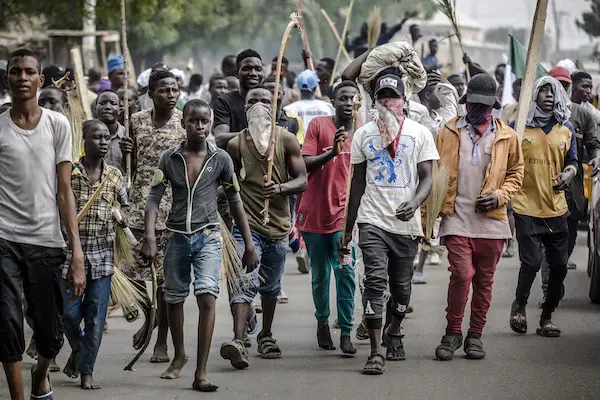Nigeria, often hailed as the “Giant of Africa” due to its vast resources and population, should ideally be a regional economic powerhouse. However, the country’s potential for robust economic growth has been hampered by a persistent issue: violence. Various forms of violence, including insurgency, communal clashes, and criminal activities, have not only claimed countless lives but have also significantly stalled Nigeria’s economic progress.
Violence creates an environment of insecurity, deterring both local and foreign investors. The uncertainty surrounding investments and business operations discourages capital inflow, expansion, and job creation. Nigeria’s potential to attract foreign direct investment is hampered by its reputation for insecurity, particularly in regions affected by insurgencies like Boko Haram in the Northeast and banditry in the Northwest.
Nigeria’s agriculture sector, which should be a driving force for economic growth, is adversely affected by violence. Farmers in conflict-prone areas are often displaced, leading to reduced agricultural productivity. Food shortages and inflationary pressures follow, negatively impacting both urban and rural populations. The inability to ensure food security perpetuates the cycle of poverty and underdevelopment.
Acts of violence often result in the destruction of critical infrastructure, including roads, schools, and healthcare facilities. These infrastructural setbacks not only disrupt the daily lives of Nigerians but also hinder economic development. The cost of repairing or rebuilding infrastructure diverts funds that could be allocated to productive sectors, such as education, healthcare, and industry.
Prolonged violence forces skilled professionals and entrepreneurs to seek safety abroad. This brain drain deprives Nigeria of valuable human capital that could have contributed to economic growth through innovation, entrepreneurship, and technological advancement.
Attacks on oil infrastructure and oil theft in the Niger Delta have long plagued Nigeria’s oil industry, a primary source of government revenue. These activities lead to reduced oil production and lost revenue, affecting the country’s ability to fund critical development projects and social programs.
Violence often exacerbates economic disparities within Nigeria. Vulnerable populations, especially those in conflict zones, face reduced access to education and healthcare. The lack of economic opportunities in such areas perpetuates cycles of poverty, making it harder for the government to bridge the wealth gap.
Consequent to Nigeria’s pervasive violence, the government must allocate a significant portion of its budget to security, diverting resources away from essential sectors like education, healthcare, and infrastructure. These security expenses are a drain on the economy, as they do not contribute to productive growth.
It is worth noting that the government is doing fairly well in funding the effort for peace. The 2023 budgetary allocation is the highest among the sectors in Nigeria.
The nexus between violence and economic growth in Nigeria is a complex and troubling issue. The vicious cycle of violence begetting economic stagnation, which, in turn, fuels more violence, must be broken for Nigeria to fulfill its economic potential. This requires a multi-faceted approach, including improved security measures, conflict resolution strategies, investments in education and healthcare, and efforts to address the root causes of violence. Until Nigeria can effectively address its violence problem, its path to sustained economic growth remains fraught with obstacles.





